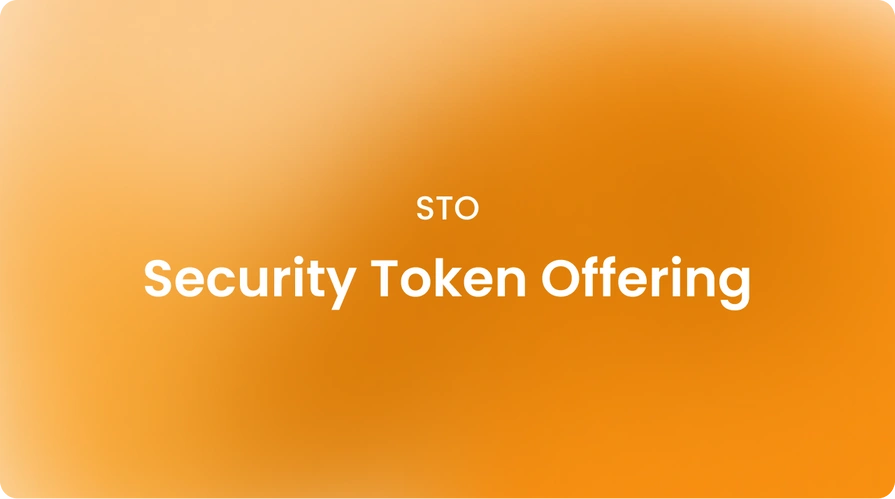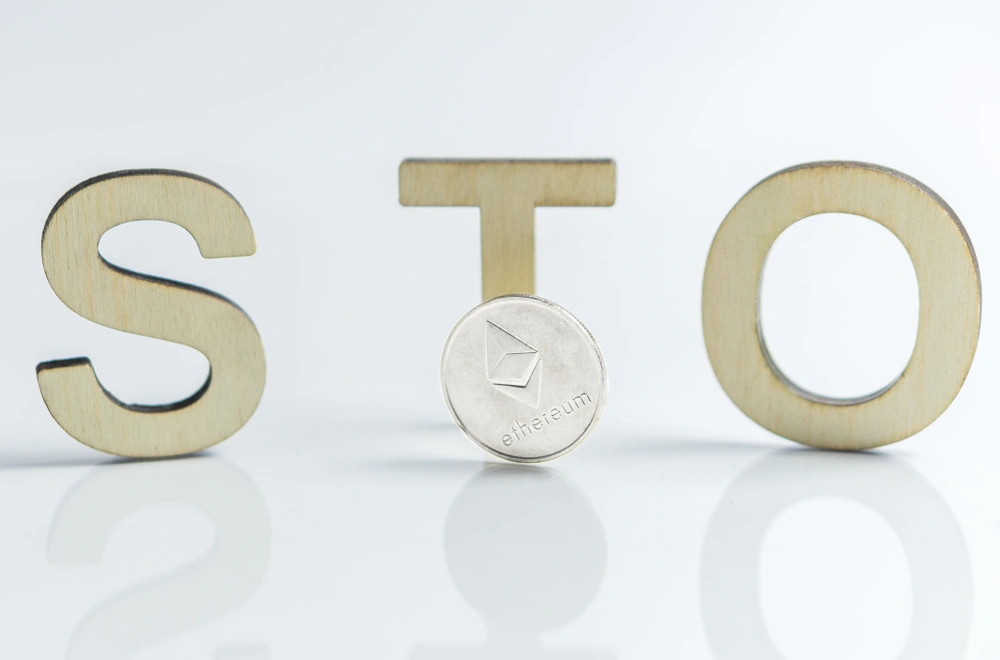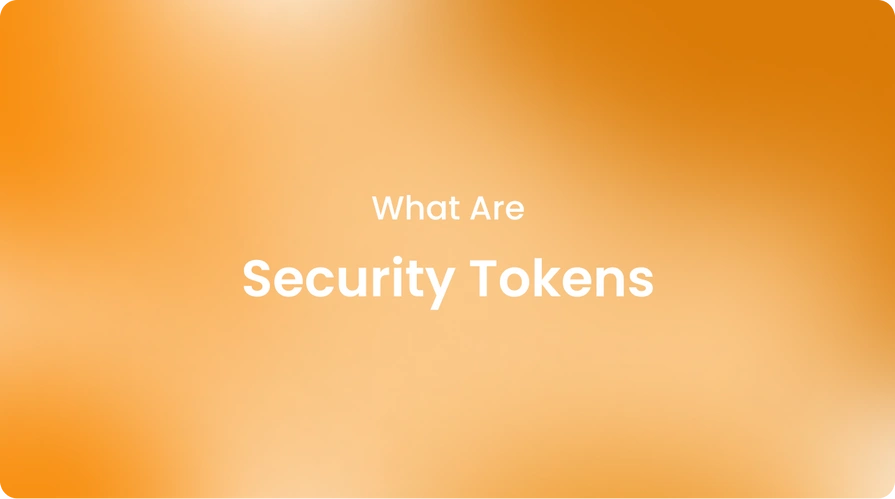|crypto, knowledgehub
What Is a Security Token Offering (STO)?

Security token offerings, commonly referred to as STOs, allow companies to offer digital securities on the blockchain. But what exactly are STOs, and how do they work?
In this article, we will explore what security tokens are, the purpose of STOs, different types of security tokens and offerings, and how businesses can launch their own successful STOs. Let’s start!
What is a security token? Why do we need security tokens?
Security tokens are crypto assets issued on a blockchain that provide shareholders with assets such as equity, debt, or profit-sharing in a company. They are digital representations of traditional financial securities like stocks, bonds, real estate investment trusts (REITs), and other investment contracts.
Traditional securities come with several limitations, including high costs, barriers to entry for smaller investors, a lack of fractional ownership, restricted liquidity, and lengthy transaction processing times. Security token offerings address these issues through their decentralized, blockchain-based structure.
Notable crypto service providers like Cryptobunq, which offers various crypto and blockchain services, including tokenization, utilize security tokens to streamline capital raising.
You can also benefit from our other crypto solutions, such as the crypto exchange API, crypto checkout and invoicing, batch crypto payments, Node as a Service, and more.
With blockchain technology and the help of CBQ, you can effortlessly integrate our expert solutions into your business for fundamental growth.
Types of security tokens
There are four main types of security tokens:
Equity tokens
Equity tokens represent ownership shares in a company that provides equity financing, voting, and dividend rights.
Debt tokens
Debt tokens serve as IOUs or promissory notes, allowing companies to raise debt capital from investors in exchange for future repayment with interest.
Asset-backed tokens
Asset-backed tokens enable ownership of physical assets such as real estate, artwork, or equipment, making it possible to fractionalize these illiquid assets and trade them more easily in digital form.
Utility tokens
Utility tokens do not offer ownership rights but rather provide access to a company's products or services. Utility tokens are generally not considered securities.
How does the security token offering work?
In an STO, a company issues digital security tokens on a blockchain, typically using the Ethereum network, in exchange for funding. These crypto tokens carry the attributes and legal agreements of the represented security that investors purchase.
The tokens can be freely traded on secondary markets. Choosing a one-stop-shop crypto service provider platform like Cryptobunq ensures compliance. You can easily tokenize and manage your assets with CBQ.
What is the purpose of a security token offering (STO) on the blockchain?
The blockchain technology provides several advantages for security token offerings. Distributed ledgers record transactions immutably, enhancing transparency.
Embedded smart contracts automate post-issuance processes and compliance. Fractionalization enables smaller investors to access previously illiquid assets through tokenization.
What is STO in the stock market?
STOs offer an alternative to equity financing on public markets, although they currently represent only a small portion of capital raised.
Like a traditional initial public offering (IPO), an STO allows a company to sell shares to new investors in exchange for funds to grow their business. However, STOs issue digital tokens on the blockchain rather than physical stock certificates.
What is STO crypto?
When it comes to crypto, STOs differ from initial coin offerings (ICO) in important ways. ICOs issue generic digital tokens or cryptocurrencies that may not represent any tangible assets or rights.
Security token offerings, on the other hand, issue regulated security tokens that function more like traditional securities and comply with securities laws.
What is the difference between STO and normal crypto?
The key difference between STO and normal cryptocurrencies like Bitcoin or Ethereum is regulatory compliance. Developers typically design cryptocurrencies as digital currencies or assets rather than securities. Regulators structure and regulate STO tokens as securities.
To learn more about securities and tokenization, make sure to check out “Asset Tokenization vs. Securitization," “Tokenized Payment,” and “Tokenization in Digital Banking." You can also follow CBQ blogs and CBQ case studies to broaden your knowledge about blockchain solutions.
What is the STO strategy?
For companies considering an STO, having a clear strategy is important. They must determine the type of security token, targeted investors, exchange listing plans, and ongoing governance of the project post-financing.
Consulting with legal and financial advisors can also help navigate evolving compliance standards across different jurisdictions as an STO strategy.
Why invest in STOs?
Compared to traditional fundraising routes, security token offerings offer appealing opportunities to both investors and companies. As a crypto fundraising model, investors are exposed to new asset classes like art, real estate, or VC funds in a frictionless manner.
Companies that raise capital through STOs benefit from higher participation due to fractional investment sizes, integrated smart contracts for automated processes, and a new pool of blockchain-native investors.
How to launch an STO? Factors to consider before launching an STO
While highly promising, STO compliance remains complex, with rules varying between regions. Diligence across four stages helps navigate complexities profitably. With proper planning, STOs systematically roll out in four phases, maximizing oversight and opportunity at each step:
- Phase 1 requires preparation and further definition of objectives and legal frameworks.
- Phase 2 focuses on pre-STO promotion, compliance, and technology setup.
- Phase 3 launches the actual sale event online or via sanctioned exchanges.
- Phase 4 focuses on post-STO duties like delivering on project roadmaps, administering the developed community, and participating in legal affairs and regulation as the field matures.
Phase 1: Preparation
Consult regulators regarding which license(s) apply. Decide the token's legal classification and future utility or rights. Hire auditors, lawyers, and technical crews.
Phase 2: Pre-STO
Design the token sale smart contract, upholding disclosure standards. Create whitepapers outlining the project and its risks. Build crypto wallets.
Phase 3: Launching STO
Market the offering, perform KYC/AML checks, and accept funding according to investment caps. On blockchain public ledgers, the recording proceeds transparently.
Phase 4: Post-STO
Maintain project updates and deliver as promised. According to varying guidelines, handle secondary market trading, taxation, and beyond.
The growth and future development of STOs
After gaining traction in 2018 by addressing the shortcomings of initial coin offerings, STOs now represent the cutting-edge of fundraising worldwide with massive untapped potential. As one report forecasted, the security tokenmarket size may exceed $10 trillion by 2027.
If you want to adapt to the security token and security token offering ecosystem, Cryptobunq is here for you with expert tokenization solutions. With CBQ, you can easily invest in tokenization and benefit from its security advantages. Contact us today and take the first step in blockchain!













